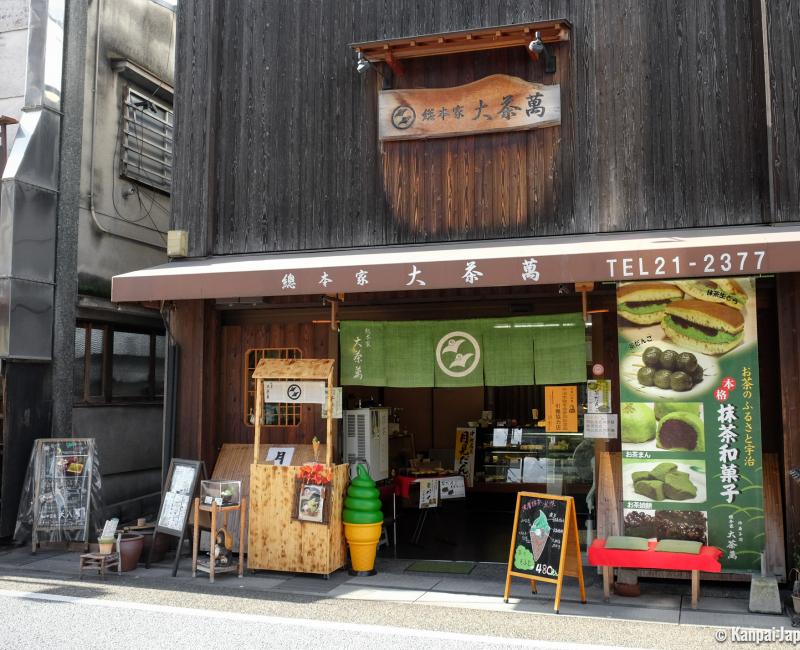Green Tea Shops in Uji
An Age-old Culinary Knowledge
Green tea shops in Uji downtown, in Kyoto’s southern suburb, are mainly located along Ujibashidori Street and Byodo-in Omotesando. Uji is considered the capital of tea in Japan and aggregates several shops where the whole range of traditional green tea can be discovered, as well as original variations of sweet deserts, ice creams and drinks.
Green tea was imported in Japan more than eight centuries ago by Zen Buddhist monks who brought the first seeds from China. They convinced Uji’s farmers to try and start to cultivate them. The origins of tea in Japan are thus linked to Uji River, and over time the city became the Japanese capital of tea. Uji is a must-see for all amateurs of this multiple-properties drink. As a matter of fact, green tea provides nutrients, proteins, amino acids, vitamins (A, C, E, B1 and B2), fluoride, but also caffeine, as well as important minerals such as potassium and calcium.
Uji is located only fifteen minutes by train 🚅 from Kyoto JR station. As soon as getting off the train, the visitor is immersed in the sweet flavor of tea. Outside the station, a letterbox shaped in a tea jar and the green colors of the Information Center are clear hints that Uji is the Japanese capital of tea if one was not aware of it.
When strolling in the narrow streets of the city, tasting venues quickly appear. Wherever you look, all the shops are dedicated to the local star: the green tea leaf. Its variations range from traditional teashops to ice cream sellers, and some vendors even boast original specialty dishes. Among other delicacies, there are melon pan brioches, croissants, chocolates, biers, and even various drinks flavored with matcha, the famous green tea powder.

At the heart of the green tea culture
Purists may be offended to see the precious powder used so casually in the daily cooking; however, the two main streets of the city will soothe them with a large array of shops to (re) discover the various types of green tea. From the classical matcha used in the tea ceremony, to the Gyokuro, a premium green tea, whose sprouts were protected from the sun for twenty days, or the more commonly available Sencha tea.
Most of the teashops naturally offer to taste several tea varieties. For example, at Kanbayashi or at Tsuen-in, the oldest teashop in Uji, whose present days’ manager M. Ryotaro Tsuen is the 23rd generation to run this business. Note however that Tsuen-in is located slightly away on the other side of Uji bridge, contrary to the other shops.
Whether green tea is to your taste or not, Uji’s visit is still interesting. The traditional shops have kept a quaint attractiveness and they line along the way to the famous Byodo-in temple, as well as more confidential temples, such as Kosho-ji in the surroundings. It is also the ideal to find 100% authentic souvenirs and gifts to bring back from a trip in Japan.

